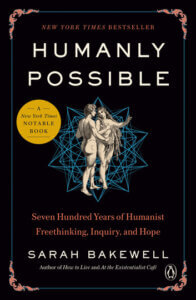This library contains collections and resources. A resource can be a link, book, podcast, video or anything that I’ve learned something from. They are curated into themed collections. Alternatively, here’s a simple list of books I’ve read and recommend.
book reviews
- questioning the prevailing narratives
- endure: book notes and thoughts
- how we were loved profoundly influences how we live and love
- born to run: thoughts & learnings
- insights from a forest monk
- a review of Wintering by Katherine May
- on becoming a person
books with imported highlights
- The Power of Myth by Joseph Campbell
- Molecules of Emotion by Candace B. Pert
- Spark by John J. Ratey, Eric Hagerman
- On becoming a person by Carl Rogers
- The brain changes itself by Norman Doidge
last updated collections
Buddhism & Zen
books that informed and shaped my understanding of buddhist and zen philosophy
2 responsesPersonal websites with a notes section
notes that are unedited /ideas-in-progress / short-form writing
2 responseslast updated resource
The dawn of everything
completed: 11 Aug 2025“In developing the scientific means to know our own past, we have exposed the mythical substructure of our ‘social science’ – what once appeared unassailable axioms, the stable points around which our self-knowledge is organized, are scattering like mice. What is the purpose of all this new knowledge, if not to reshape our conceptions of who we are and what we might yet become? If not, in other words, to rediscover the meaning of our third basic freedom: the freedom to create new and different forms of social reality”
The Monk and the Philosopher
completed: 25 Feb 2018“Jean Francois-Revel, a pillar of French intellectual life in our time, became world famous for his challenges to both Communism and Christianity. Twenty-seven years ago, his son, Matthieu Ricard, gave up a promising career as a scientist to study Tibetan Buddhism — not as a detached observer but by immersing himself in its practice under the guidance of its greatest living masters.
Meeting in an inn overlooking Katmandu, these two profoundly thoughtful men explored the questions that have occupied humankind throughout its history.”
last highlighted
In developing the scientific means to know our own past, we have exposed the mythical substructure of our ‘social science’ – what once appeared unassailable axioms, the stable points around which our self-knowledge is organized, are scattering like mice. What is the purpose of all this new knowledge, if not to reshape our conceptions of who we are and what we might yet become? If not, in other words, to rediscover the meaning of our third basic freedom: the freedom to create new and different forms of social reality.
Most interestingly for our own perspective, he too stressed that the Plains Indians were conscious political actors, keenly aware of the possibilities and dangers of authoritarian power. Not only did they dismantle all means of exercising coercive authority the moment the ritual season was over, they were also careful to rotate which clan or warrior clubs got to wield it: anyone holding sovereignty one year would be subject to the authority of others in the next.
Those Native Americans who had been in France, he wrote,
‘… were continually teasing us with the faults and disorders they observed in our towns, as being occasioned by money. There’s no point in trying to remonstrate with them about how useful the distinction of property is for the support of society: they make a joke of anything you say on that account. In short, they neither quarrel nor fight, nor slander one another; they scoff at arts and sciences, and laugh at the difference of ranks which is observed with us. They brand us for slaves, and call us miserable souls, whose life is not worth having, alleging that we degrade ourselves in subjecting ourselves to one man [the king] who possesses all the power, and is bound by no law but his own will.’
